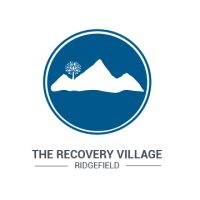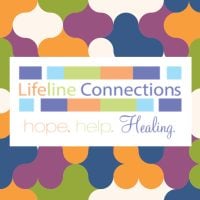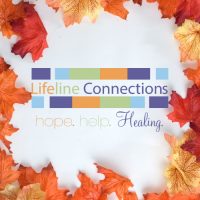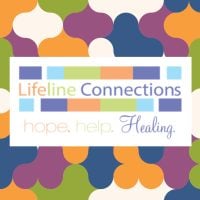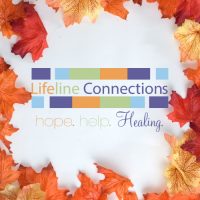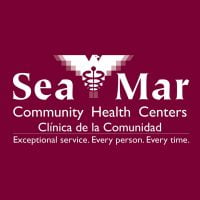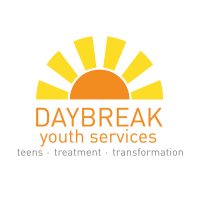Center for Dual Diagnosis Recovery Columbia River - MH Services
Drug Rehab Center in Vancouver, Washington
Center for Dual Diagnosis Recovery Columbia River - MH Services is an addiction and substance abuse treatment facility providing personalized care and evidence-based therapies to individuals with co-occurring disorders, offering inpatient, intensive outpatient and aftercare services, and is accredited by The Joint Commission and awarded the Excellence in Patient Care Award.
Multiple patients have reported Center for Dual Diagnosis Recovery Columbia River - MH Services as permanently closed.
Research other rehabs in Vancouver, Washington, or get help finding an open facility.
About Center for Dual Diagnosis Recovery Columbia River - MH Services in Washington
Center for Dual Diagnosis Recovery Columbia River - MH Services, situated in Vancouver, Washington, is a private rehab facility that has been providing specialized care for individuals struggling with alcoholism, drug addiction, dual diagnosis, mental health issues, substance abuse, and opioid addiction.
• Experienced team of professionals offering personalized assessment and treatment plans
• Inpatient, intensive outpatient, and aftercare services available
• Evidence-based therapies include Dialectical Behavioral Therapy, Cognitive Behavioral Therapy, and Acceptance and Commitment Therapy
• Comprehensive range of addiction treatment services, such as psychotherapy, counseling, 12-step program participation, family counseling, relapse prevention, and life skills training
Accredited by The Joint Commission and licensed as a substance use disorder treatment provider in Washington state, Center for Dual Diagnosis Recovery Columbia River - MH Services has been recognized with the Excellence in Patient Care Award from the National Council for Behavioral Health for their dedication to delivering quality care.
The facility treats a wide range of addictions and mental health issues, with a focus on co-occurring disorders. They employ a variety of evidence-based treatment methods and offer multiple levels of care, including inpatient, intensive outpatient, and aftercare services, to support individuals throughout their recovery journey.
In addition to their core treatment programs, Center for Dual Diagnosis Recovery Columbia River - MH Services provides 24-hour telephone counseling for individuals in crisis and offers referrals to community resources and support services, ensuring comprehensive care for those seeking help with addiction and mental health concerns.
Genders
Ages
Modality
Additional
Accreditations
SAMHSA
Conditions and Issues Treated
Opioid addiction has become a significant health problem in the United States. In 2015, there were 91 opioid overdose-related deaths per day, with a substantial increase in mortality rate in 2014.
When opioid addiction has reached a point where a person’s life becomes unmanageable, treatment options are available to help them get sober. Treatment that includes medical care with medications and counseling can help a user transition into sobriety.
When someone in struggles with both addiction and mental or emotional illness, this is considered a dual diagnosis. Dual diagnosis treatment can include therapy for these issues to happen simultaneously, which will allow either of them to be treated effectively.
Sometimes people who have suffered from addiction disorder also suffer from co-occurring disorders such as depression, anxiety, bipolar disorder, etc., making them “dual diagnoses.” Dual diagnoses require specialized treatment programs where drug and alcohol addiction are addressed along with psychiatric illnesses. Some rehabilitation facilities provide patients suffering from cooccurrences a program with highly integrated services and a clean environment with few distractions to help them succeed.
Levels of Care Offered
This center offers a variety of custom treatment tailored to individual recovery. Currently available are Drug Rehab, Dual-Diagnosis, Intensive Outpatient, Outpatient, with additional therapies available as listed below.
The Intensive Outpatient Program offered by Center for Dual Diagnosis Recovery Columbia River - MH Services is designed for those who need intensive care but would rather get it in the comfort of their own home. The treatment programs vary in duration and intensity and can be tailored to suit the patient’s needs. The program includes regular visits to the facility, though the overnight stay is not needed. IOP is suitable for patients who have been treated in residential treatment programs and are in the transition phase. It helps the patient live at home and discharge some work or school responsibilities even while undergoing treatment. The patients gradually get back to their routine life with the support of a friend or family member.
Outpatient treatment is often used for drug addicts in drug rehab. Outpatient treatment consists of counseling and therapy sessions. This form of treatment is also called ‘day-treatment’. The outpatient treatment process begins with the addict’s initial detox period, lasting about ten days.
Outpatient treatment is used for those who are at moderate risk for ‘slipping back’ into the addiction, for those who:
- Are not currently experiencing any side effects from withdrawal and can handle social pressure
- Can handle stressors that might trigger relapse
- Have a stable living environment or have moved out of their previous environment, which was not conducive to being sober
- Have a support system that allows them to go to a facility a few times a week while still keeping their current responsibilities
- Have no legal obligations, being either on parole or probation, that require them to seek treatment at a mandatory facility
- Are not currently experiencing any side effects from withdrawal and can handle social pressure
- Have a stable living environment or have moved out of their previous environment, which was not conducive to being sober
Therapies & Programs
Because no single treatment is effective for all addicts, the goal of treatment and therapy should be to figure out what works best for each individual. Tolerance and withdrawal levels differ from person to person, affecting the treatment intensity required. Addiction treatment should aim to help addicts develop healthy coping mechanisms for dealing with their addiction and its underlying causes.
Family therapy is beneficial for people who are in addiction treatment services because it offers addicts the opportunity to work with their family members to better understand what led them to make choices that contributed to their addiction.
This type of therapy helps family members reach a deeper understanding of how they can best support their loved one during recovery. It also helps the addict better understand their own motivations and triggers that led them to turn to substance abuse.
Family therapy can help addicts in the following ways:
- Assists family members in processing difficult feelings so they don’t blame or resent recovering addicts
- Assists family members in understanding how addiction has impacted the addict and everyone who is involved with them
- Allows the addict to take responsibility for their actions, while encouraging improved communication skills
- Helps family members understand how to best support an individual in recovery so addicts don’t relapse again.
Group therapy can help build a stronger support system and give addicts in Vancouver, WA insight into their addiction that they gain through shared conversations. Group therapy occurs in a controlled group environment, exclusive of one on one meetings. This makes it safer for patients to feel comfortable sharing the struggles they’re going through and gaining perspective.
Trauma therapy is beneficial for people who are recovering from drug addiction because it helps them heal from past traumas that may have caused them to turn to harmful substances or led them to experience negative emotions that contributed to their destructive behaviors.
This type of treatment works by processing difficult experiences so individuals can learn how to process these events without having to turn to substances for coping.
Trauma therapy can help addicts in the following ways:
- Helps individuals understand their experiences and emotional responses to difficult events, including why they turned to drugs or alcohol
- Provides them with comfort and support while working through difficult emotions related to these traumatic experiences
- Offers an opportunity for addicts to have a voice and be heard, which can improve their self-esteem
- Can help them develop coping skills so they can better respond to triggers instead of turning to substance abuse.
Cognitive-behavioral therapy is a technique that is used to help people with addiction. Specifically, it is a way of identifying thoughts and behaviors that cause the addiction. It is typically used in an individual counseling session.
The content explains cognitive behavioral therapy and how it works to address some behaviors that may be leading to unintended consequences in their life, as well as its benefits for those seeking sobriety.
It works by helping people to talk through their issues and addressing the thoughts that cause said behaviors. It is an excellent way of learning about oneself and one’s perception of the world.
Payment Options Accepted
For specific insurance or payment methods please contact us.
Is your insurance accepted?
Ask an expert, call (888) 674-0062
Additional Details
Specifics, location, and helpful extra information.
Vancouver, Washington 98661 Phone Number(360) 993-3000 Meta DetailsUpdated April 15, 2024
Staff Verified
Center for Dual Diagnosis Recovery Columbia River - MH Services Patient Reviews
There are no reviews yet. Be the first one to write one.
Vancouver, Washington Addiction Information
Washington's substance use, abuse, and addiction rates have followed the trends of the rest of the over the past years. Methamphetamine abuse is the biggest threat to Washington. Heroin-related overdoses increased by almost 450% from 2006 to 2016. 20% of all annual deaths in Washington are somehow drug and/or alcohol-related. Drugs are widely abused in Washington because they are easily trafficked in and out of the state.
Vancouver, WA, has one of the highest rates of drug abuse in the entire country. In 2016, there were 392 drug-related calls for service, an increase of almost 9% from the year before. The most common drugs abused in Vancouver are methamphetamine and marijuana. Vancouver, Washington, has many different types of drug rehab centers that offer various services. 12-step programs are generally ongoing and common there.
Treatment in Nearby Cities
- Port Townsend, WA (171.1 mi.)
- Blaine, WA (231.6 mi.)
- Everson, WA (226.8 mi.)
- Stanwood, WA (179.8 mi.)
- Puyallup, WA (107.5 mi.)
Centers near Center for Dual Diagnosis Recovery Columbia River - MH Services
The facility name, logo and brand are the property and registered trademarks of Center for Dual Diagnosis Recovery Columbia River - MH Services, and are being used for identification and informational purposes only. Use of these names, logos and brands shall not imply endorsement. RehabNow.org is not affiliated with or sponsored by Center for Dual Diagnosis Recovery Columbia River - MH Services.



